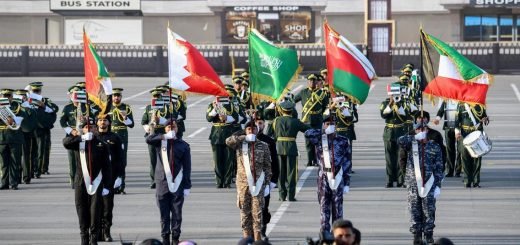Iran slams U.S. sanctions push, Syria rejects idea of Iranian withdrawal
Iran on Wednesday kept up a drumbeat of opposition to U.S. demands for sweeping change in its foreign policy and nuclear programme, and Tehran’s ally Damascus dismissed out of hand a U.S. call for a withdrawal of Iranian forces from Syria.
France, one of several European powers dismayed by the U.S. withdrawal from a 2015 nuclear accord, said Washington’s method of adding more sanctions on Tehran would reinforce the country’s dominant hardliners.
U.S. Secretary of State Mike Pompeo on Monday threatened Iran with “the strongest sanctions in history” if it did not curb its regional influence, accusing Tehran of supporting armed groups in countries such as Syria, Lebanon, and Yemen.

Iran’s Foreign Minister Mohammad Javad Zarif attends a meeting of the Organisation of Islamic Cooperation (OIC) Foreign Ministers Council in Istanbul, Turkey on May 18, 2018. Hudaverdi Arif Yaman/Pool via Reuters.
Pompeo was speaking two weeks after President Donald Trump pulled out of an international nuclear deal with Iran that had lifted sanctions on Iran in exchange for curbs to its nuclear programme. European powers see the accord as the best chance of stopping Tehran from acquiring a nuclear weapon.
Iran’s Foreign Minister Mohammad Javad Zarif said Pompeo had repeated old allegations against Tehran “only with a stronger and more indecent tone”.
“Pompeo and other U.S. officials in the current administration are prisoners of their wrong illusions, prisoners of their past and have been taken hostage by corrupt pressure groups,” he told state television.
A senior Iranian military official, Major General Mohammad Bagheri, said Iran would not bow to Washington’s pressure to limit its military activities.
“This enemy (the United States) does not have the courage for military confrontation and face-to-face war with Iran, but it’s trying to put economic and mental pressures on the Iranian nation,” state news agency IRNA reported him as saying.
“ENDANGERING THE REGION”
In Damascus, Syria’s deputy foreign minister dismissed the notion of a withdrawal of Iranian forces.
In Syria’s seven-year-old conflict, Iran has provided vital support to President Bashar al-Assad’s military. Its forces and the militias it backs from the region, including Lebanon’s Hezbollah, helped Damascus claw back control of major cities from militants and rebels.
“Whether Iranian forces or Hezbollah withdraw or stay in Syria is not up for discussion because it’s the (business) of the Syrian government,” Lebanon’s Al-Mayadeen TV cited Faisal Mekdad as saying.
In Paris, France’s foreign minister said the U.S. decision to scrap the Iran nuclear deal and implement a tough strategy on the country would strengthen Tehran’s hardliners and endanger the region.
“We disagree with the method because this collection of sanctions which will be set up against Iran will not enable dialogue and, on the contrary, it will reinforce the conservatives and weaken President Rouhani. This posture risks endangering the region more,” Jean-Yves Le Drian told France Inter radio.
He said Paris would continue to implement the agreement even if it did agree with the United States that Iran’s ballistic missile activity and regional hegemonic ambitions needed to be curbed.
He said Paris shared Washington’s concerns over Iran’s ballistic missile “frenzy” and regional ambitions, but the 2015 nuclear deal was the best chance of stopping Tehran developing a nuclear bomb.
Deputy foreign ministers of the remaining parties to the accord – Britain, China, France, Germany, and Russia – will meet their Iranian counterpart on Friday in Vienna.
The meeting will assess what can be done to keep the deal and circumvent extraterritorial American sanctions that are impacting foreign business appetite for Iran.
REUTERS
Irfan Ansari The Kootneeti Team - Middle East Monitor


















